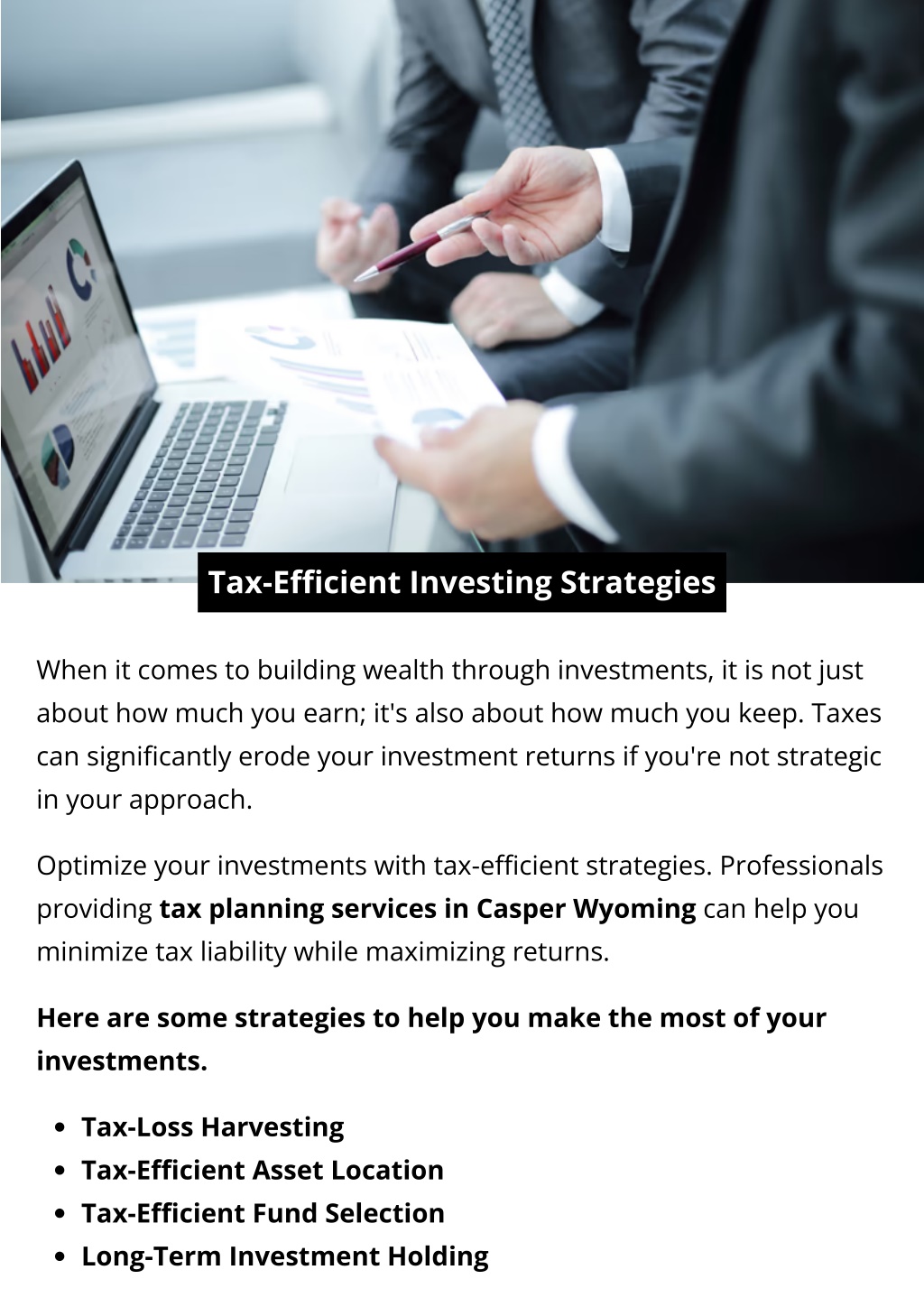Maximizing Your Wealth: The Power of Tax-Efficient Investing
When it comes to managing your finances, one of the most important things to consider is how you can maximize your wealth. And one of the most powerful tools in your arsenal for achieving this goal is tax-efficient investing. By making smart money moves and taking advantage of tax-efficient investment strategies, you can significantly reduce your tax bill and keep more money in your pocket.
Tax-efficient investing is all about finding ways to minimize the taxes you pay on your investments, allowing you to keep more of your hard-earned money. There are several strategies you can use to achieve this, including investing in tax-advantaged accounts such as IRAs and 401(k)s, taking advantage of tax-loss harvesting, and choosing investments that are more tax-efficient.
One of the key benefits of tax-efficient investing is the ability to defer taxes on your investments until a later date. By investing in tax-advantaged accounts like IRAs and 401(k)s, you can enjoy tax-deferred growth on your investments, allowing your money to compound over time without being eroded by taxes. This can have a significant impact on your overall wealth, as the more money you can keep invested and growing, the greater your returns will be in the long run.
Another important tax-efficient investing strategy is tax-loss harvesting, which involves selling investments that have experienced a loss in order to offset gains and reduce your tax liability. By strategically selling losing investments and reinvesting the proceeds in other assets, you can lower your tax bill while maintaining a well-diversified portfolio. This can be particularly beneficial in volatile markets, where you may have investments that have declined in value but are expected to rebound in the future.

Image Source: slideserve.com
In addition to tax-advantaged accounts and tax-loss harvesting, choosing investments that are more tax-efficient can also help reduce your tax bill. Investments like index funds and exchange-traded funds (ETFs) tend to be more tax-efficient than actively managed mutual funds, as they have lower turnover and generate fewer capital gains distributions. By opting for these types of investments, you can minimize the taxes you pay on your investment returns and keep more of your money working for you.
It’s important to note that tax-efficient investing is not just about minimizing taxes in the short term, but also about maximizing your after-tax returns over the long term. By implementing tax-efficient strategies and making smart investment choices, you can increase your overall wealth and achieve your financial goals more effectively.
In conclusion, tax-efficient investing is a powerful tool that can help you maximize your wealth and reduce your tax bill. By taking advantage of strategies like investing in tax-advantaged accounts, tax-loss harvesting, and choosing tax-efficient investments, you can keep more of your money in your pocket and set yourself up for long-term financial success. So why wait? Start implementing tax-efficient investing strategies today and watch your wealth grow!
Keep More Money in Your Pocket with Smart Tax Strategies
When it comes to investing, one of the key factors to consider is how you can reduce your tax bill and keep more money in your pocket. Smart tax strategies can make a big difference in the long run, allowing you to maximize your wealth and achieve your financial goals faster. In this article, we will explore some tax-efficient investing tips that can help you reduce your tax liability and increase your overall returns.
One of the first things to consider when it comes to tax-efficient investing is the type of accounts you use to hold your investments. Tax-advantaged accounts such as 401(k)s, IRAs, and Health Savings Accounts (HSAs) offer significant tax benefits that can help you save money on taxes both now and in the future. By taking advantage of these accounts, you can reduce your taxable income and potentially lower your tax bill.
Another important tax-efficient investing strategy is to focus on long-term capital gains rather than short-term gains. Capital gains tax rates are typically lower for investments held for more than a year, so by holding onto your investments for the long term, you can reduce the amount of taxes you owe on any profits. This can make a big difference in your overall returns, allowing you to keep more of your hard-earned money.
Diversification is another key strategy for reducing your tax bill through tax-efficient investing. By spreading your investments across a variety of asset classes and investment vehicles, you can take advantage of different tax treatments and potentially lower your overall tax liability. For example, investing in a mix of stocks, bonds, and real estate can help you minimize the impact of taxes on your portfolio and maximize your after-tax returns.
Tax-loss harvesting is also a valuable tool for reducing your tax bill with tax-efficient investing. This strategy involves selling investments that have experienced a loss in order to offset gains in other investments and reduce your overall tax liability. By strategically harvesting losses throughout the year, you can minimize your taxes and keep more money in your pocket.
Finally, working with a financial advisor who specializes in tax-efficient investing can help you develop a personalized tax strategy that aligns with your financial goals and maximizes your after-tax returns. A knowledgeable advisor can help you navigate the complex world of tax laws and regulations, allowing you to make smart decisions that minimize your tax liability and keep more money in your pocket.
In conclusion, implementing smart tax strategies is essential for reducing your tax bill and keeping more of your hard-earned money. By taking advantage of tax-advantaged accounts, focusing on long-term capital gains, diversifying your investments, practicing tax-loss harvesting, and working with a financial advisor, you can maximize your wealth and achieve your financial goals faster. So why wait? Start implementing these tax-efficient investing tips today and watch your savings grow!
Tax-Efficient Investing: Strategies to Minimize Your Tax Liability